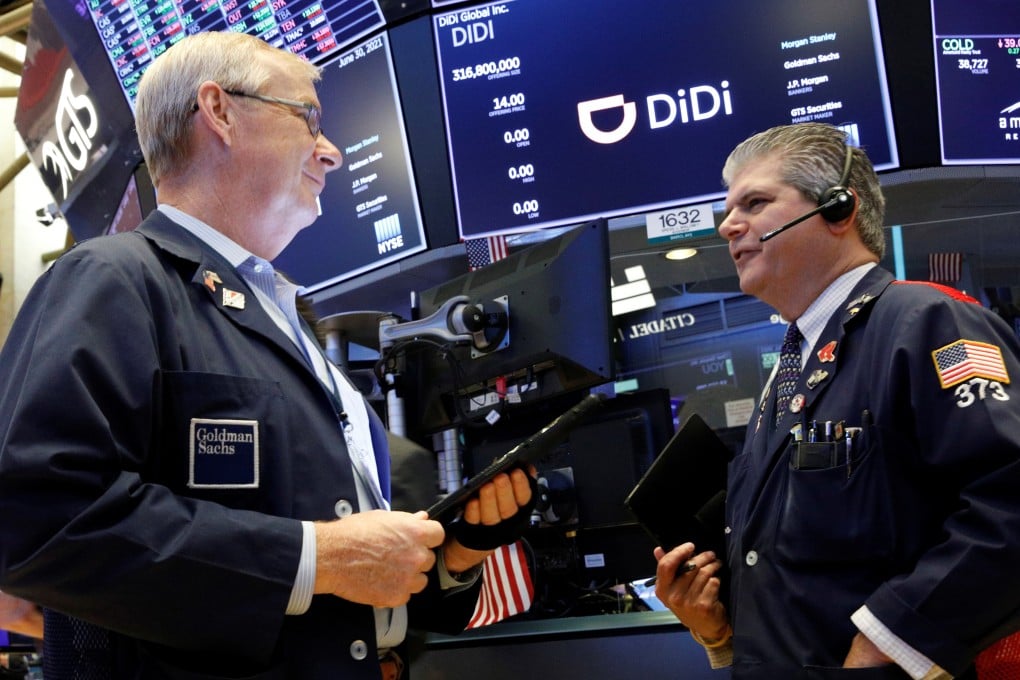Why did Didi choose the US over Hong Kong for its IPO?
- Days after its blockbuster US$4.4 billion IPO Didi Chuxing is facing an inquiry by Chinese regulators into its data collection policies
- US has proved an easier path to the public markets for Chinese firms, which raised US$12.5 billion through US listings in the first half of this year

The Beijing-based company chose New York over Hong Kong and Shanghai’s Nasdaq-style Star Market, opting to pursue an IPO in the American capital markets, the deepest and most liquid in the world.
It is one of nearly three dozen Chinese firms that opted to debut in the US, raising an eye-popping US$12.5 billion combined in the first half of this year, according to financial data provider Refinitiv. That compared with US$12 billion raised by 30 Chinese companies in all of 2020.
However, increasing concerns by Beijing about the vast troves of data that Didi and other tech giants hold on Chinese citizens could make that track a more challenging one in the future, investors and deal makers said.
“Chinese authorities may tighten the criteria and [implement] stricter scrutiny on companies seeking offshore listing, especially those heading to the US,” said Bruce Pang, head of macro, strategy research at China Renaissance.
Pang declined to comment on Didi Chuxing’s IPO. However, he added that “such actions create short-term pressure not only on listed tech companies in general but also the valuation of pre-IPO companies”.
A Didi representative declined to comment for this story.